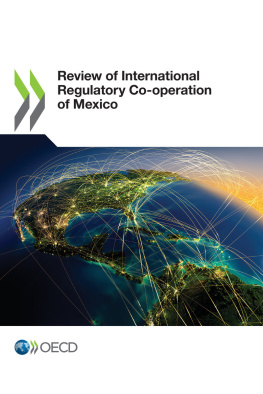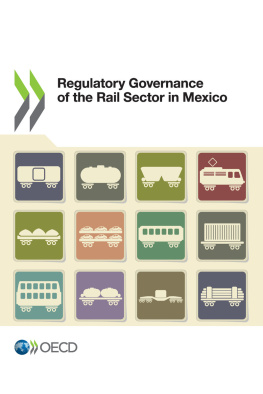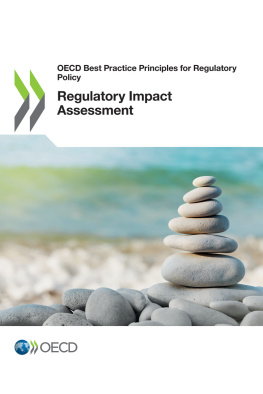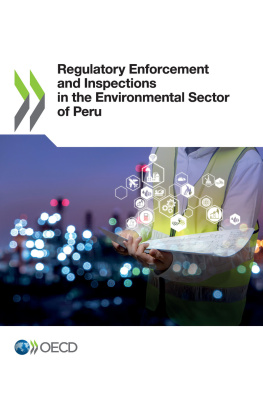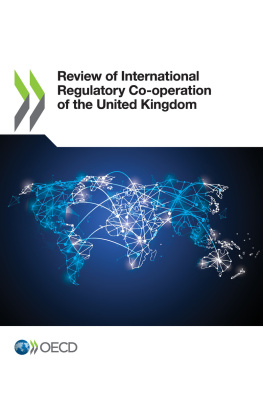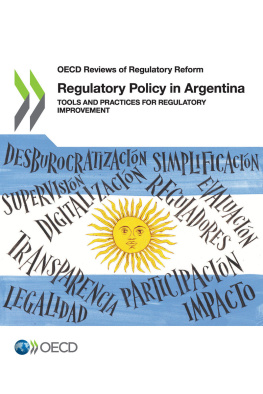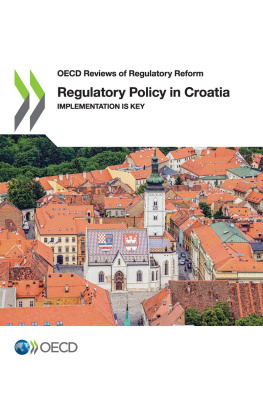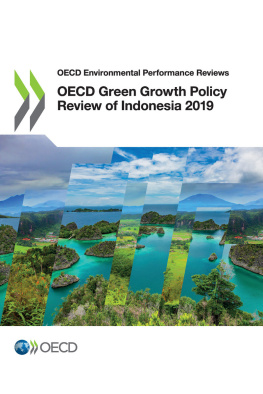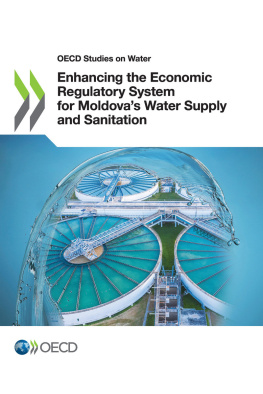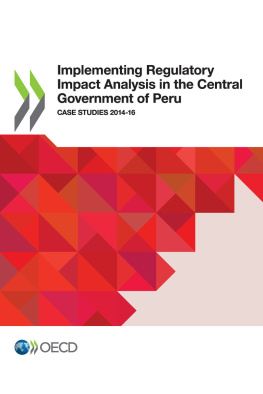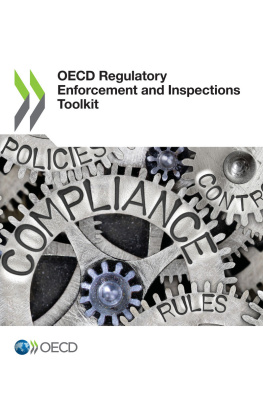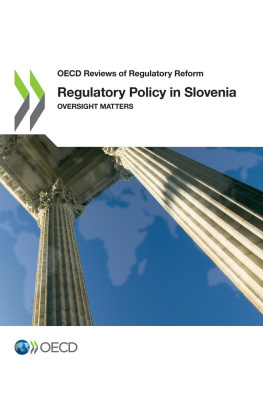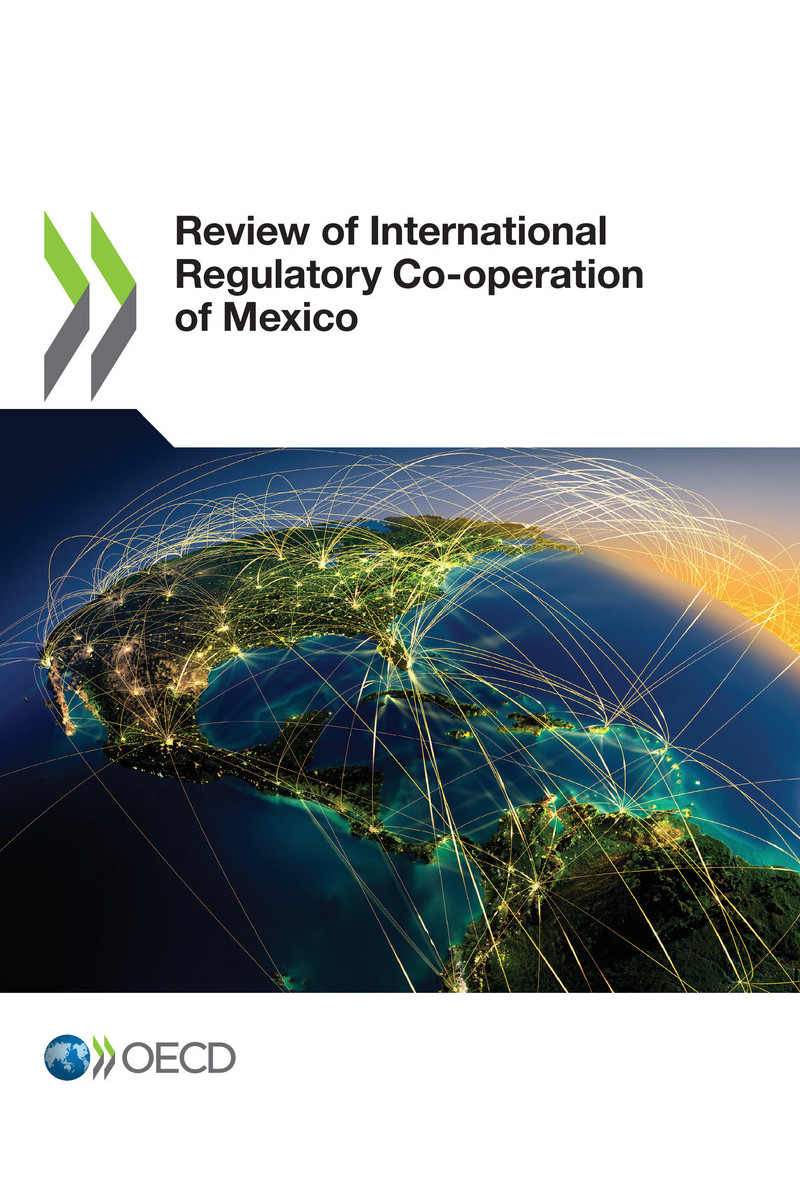The review of International Regulatory Co-operation (IRC) in Mexico was carried out by the OECD Public Governance Directorate under the auspices of the OECD Regulatory Policy Committee using the regulatory policy review methodology developed over two decades of peer learning. It builds on the OECD 2012 Recommendation of the Council on Regulatory Policy and Governance, which makes international regulatory co-operation (IRC) an integral part of quality regulation in todays globalised context. The review further draws from the OECD body of work on IRC and specific country and sector case studies developed since 2012.
This is the first in-depth international regulatory co-operation report undertaken by the OECD. The report is based on answers provided by the Ministry of Economy and several Mexican agencies to an OECD questionnaire, and on various meetings and interviews during two fact-finding missions. The review benefited from the insights of peer-reviewers from Canada, Chile and New Zealand. Two preliminary versions of the report were discussed in policy workshops with a wide range of Mexican public officials and business chamber representatives. The review was peer-reviewed in the OECD Regulatory Policy Committee.
The report supports the broader ambition of Mexico to improve the effectiveness of its regulatory framework to ensure more efficient and competitive markets. It was commissioned by Mexicos Ministry of Economy (Unit for Competition and Public Policies for the Efficiency of Markets) and can be read together with other OECD studies on Mexicos experience, such as the Standard-Setting and Competition in Mexico: A Secretariat Report and specific case studies as part of the OECDs Competition Assessment Project.
Acknowledgements
This report was co-ordinated and prepared by Celine Kauffmann, Marianna Karttunen and Guillermo Morales Sotomayor under the overall direction of Nick Malyshev, Head of the Regulatory Policy Division and the leadership of Marcos Bonturi, Director for Public Governance. Inputs were provided by Manuel Gerardo Flores and Delia Vazquez (OECD Regulatory Policy Division). The report was prepared for publication by Jennifer Stein, and administrative assistance was provided by Claudia Paupe.
The assessment by peers with unique experience on IRC was instrumental to designing the key conclusions of this report. The OECD Secretariat is very grateful for the invaluable inputs provided by Jeannine Ritchot, Executive Director of the Regulatory Policy and Cooperation Directorate from the Treasury Board (Canada); Gastn Fernandez, Head of the Regulatory Unit at the General Directorate for International Economic Relations of the Ministry of Foreign Affairs (Chile); and Julie Nind, principal policy advisor at the Ministry of Business, Innovation and Employment (New Zealand).
Special thanks go to the Ministry of Economy of Mexico and its staff; in particular to Minister of Economy, Ildefonso Guajardo, and Vice Minister of Competitiveness and Standardisation, Rocio Ruiz who commissioned this report. We are also very grateful to Mario Emilio Gutierrez, National Commissioner from the National Commission for Regulatory Improvement, CONAMER (formerly COFEMER), Juan Carlos Baker Pineda, Under-Minister for Foreign Trade as well as the Permanent Delegation of Mexico to the OECD led by H.E. Ambassador Monica Aspe for their commitment throughout the review process.
We also express our gratitude to the many government officials who provided inputs, including (but not limited to): Jose Eduardo Mendoza, Commissioner from the Federal Economic Competition Commission; from the Unit of Competition and Public Policies for Market Efficiency, David Lopez, Head for the Unit, Francisco Javier Higareda Jaimes, Deputy Director of the Unit, Ana Lilia Martinez, Director of Competition Analysis and Markets Efficiency and Fabin Coca Reyes, Director of the Unit of Competition and Public Policies for Market Efficiency; from the General Bureau of Standards, Alberto Ulises Esteban Marina, General Director, Jess Lucatero, Deputy Director for Operation and Claudia Sama, Deputy Director for Operation; from the General Direction on International Trade Rules at the Under-Ministry of Foreign Trade, Mnica Lugo, Deputy Director General; and from CONAMER, Marcos Avalos, General Coordinator of Regulatory Impact Assessments.
Critical insights were also received from different Mexican authorities that helped inform the preparation of this review, particularly from the Ministries of Foreign Affairs (SRE), Communications and Transport (SCT), Health (SSA), and Environment and Natural Resources (SEMARNAT); the Federal Telecommunications Institute (IFT); the Agency for Safety, Energy and Environment (ASEA); the Federal Commission for the Protection of Sanitary Risks (COFEPRIS); National Service of Health, Food Safety and Agri-food Quality (SENASICA); National Commission for the Efficient Use of Energy (CONUEE); Mexican Accreditation Entity (EMA); Mexican Council of Standardisation and Conformity Assessment (COMENOR); National Chamber of the Cosmetic Industry (CANIPEC).
The external consultation process resulted in useful feedback from the OECD Regulatory Policy Committee, colleagues from the OECD Legal Directorate and the Competition Division, as well as from other international organisations, namely the International Electrotechnical Commission (IEC), the International Organization for Standardization (ISO), the World Organisation for Animal Health (OIE) and the World Trade Organisation (WTO).
The work on regulatory policy is conducted under the supervision of the OECD Regulatory Policy Committee whose mandate is to assist member and partner countries in building and strengthening capacity for regulatory quality and regulatory reform. The Regulatory Policy Committee is supported by staff within the Regulatory Policy Division of the Public Governance Directorate. The OECD Public Governance and Territorial Development Directorates mission is to help governments at all levels design and implement strategic, evidence-based and innovative policies to strengthen public governance, respond effectively to diverse and disruptive economic, social and environmental challenges and deliver on governments commitments to citizens.

